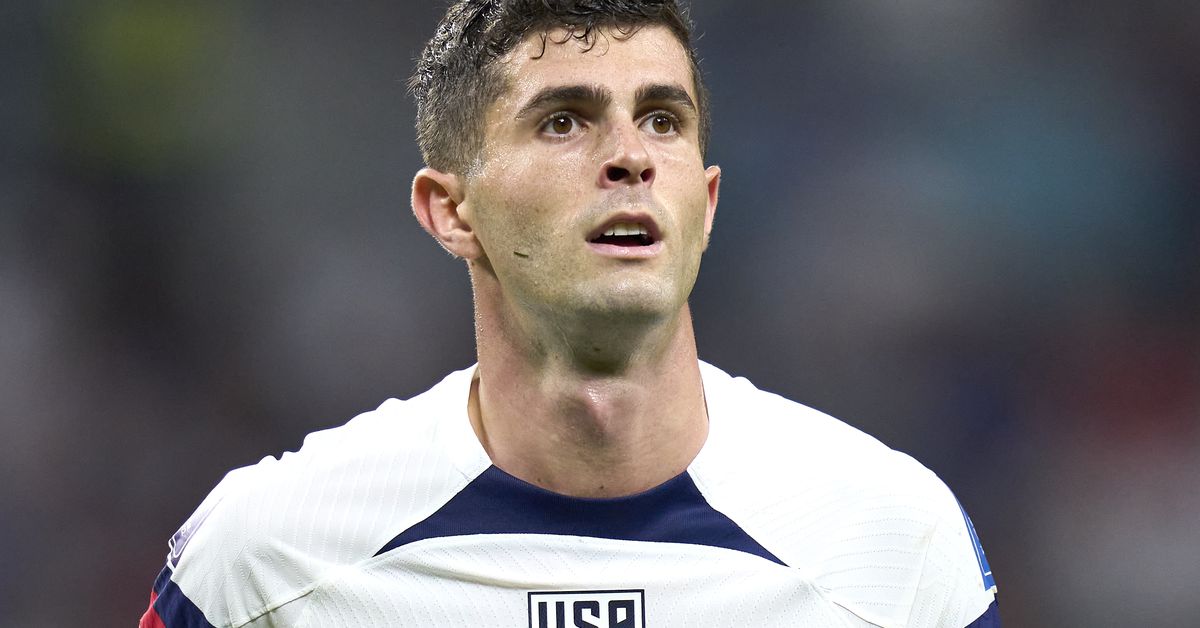The Boateng-Kruse Dispute: A Reflection Of Hertha's Problems

Table of Contents
2.1. The Public Fallout and its Immediate Impact
The Boateng-Kruse dispute erupted publicly in [Insert Date], following [briefly describe the triggering event, e.g., a disagreement during a match or training session]. The details that leaked to the press painted a picture of significant dressing room unrest and a lack of team cohesion at Hertha BSC. The Hertha BSC crisis, as it was quickly dubbed by the media, involved [mention specific public statements or actions, e.g., heated exchanges on the pitch, social media posts, etc.]. The immediate impact was devastating:
- Media Coverage of the Incident: The incident dominated sports headlines across Germany, generating intense scrutiny of Hertha BSC's internal dynamics.
- Impact on Fan Sentiment and Social Media Reaction: Social media was ablaze with discussion, showcasing a divided fanbase, with some blaming individual players while others criticized the club's management.
- Immediate Consequences for the Players Involved: Both players faced disciplinary action from the club, ranging from fines to temporary suspensions. This further fueled the perception of a club in crisis. The player conflict undeniably damaged the team's image and public perception.
This public display of player conflict significantly impacted team morale and performance on the pitch. The ensuing instability directly affected the team's results in subsequent matches, leading to a period of poor form.
2.2. Underlying Issues within Hertha BSC's Squad Dynamics
The Boateng-Kruse dispute didn’t occur in a vacuum. It exposed long-simmering tensions within the Hertha BSC squad, suggesting broader problems with squad harmony. Several factors likely contributed to the escalating conflict:
- Competition for Playing Time: Both Boateng and Kruse were established players vying for limited spots in key positions, potentially creating resentment and competition.
- Personality Clashes between Players: Reports suggested inherent personality differences between the two, potentially exacerbated by the high-pressure environment of professional football.
- Lack of Clear Leadership and Communication from Management: A perceived lack of strong leadership from the coaching staff and management could have allowed tensions to fester and escalate unchecked. The absence of effective team cohesion strategies allowed the conflict to spiral out of control. Addressing internal conflicts requires proactive leadership.
The lack of squad harmony and effective team cohesion techniques within Hertha BSC’s structure allowed minor disagreements to escalate to a full-blown public crisis.
2.3. Management and Leadership Failures at Hertha BSC
The club's response to the Boateng-Kruse dispute further revealed significant failures in Hertha BSC's management structure. The handling of the situation pointed towards:
- Management Incompetence: The club's delayed and seemingly inadequate response to the escalating situation suggests a lack of proactive crisis management skills.
- Lack of Leadership: The inability to prevent and de-escalate the conflict points to a deficiency in strong, decisive leadership within the club's hierarchy.
- Poor Team Management: The failure to foster a positive team environment and effectively address underlying tensions contributed to the crisis.
The club instability became further apparent in:
- Failure to address underlying issues before they escalated: The club appeared to ignore warning signs of growing tensions within the squad.
- Inadequate communication and conflict resolution strategies: A lack of effective communication channels and conflict resolution mechanisms allowed the situation to deteriorate rapidly.
- Lack of decisive action in addressing player conflicts: The club's response was perceived as reactive rather than proactive, further exacerbating the crisis.
2.4. The Wider Context: Hertha BSC's Struggle for Consistency
The Boateng-Kruse dispute didn't emerge in isolation; it mirrored Hertha BSC's broader struggle for consistency in recent seasons. The club has experienced:
- Hertha BSC Performance Issues: Inconsistent performance on the pitch has been a recurring problem, resulting in unpredictable league standings.
- Bundesliga Struggles: The team has struggled to maintain a consistent challenge for top positions in the Bundesliga.
- Consistent Underperformance: The club’s fluctuating performance reflects deeper structural issues beyond just player disputes.
These underlying issues, including a lack of a clear strategic vision, inconsistent transfer policies, and frequent managerial changes, contributed to the environment that allowed the Boateng-Kruse dispute to unfold and highlights the Hertha BSC performance struggles.
3. Conclusion: The Boateng-Kruse Dispute – A Microcosm of Hertha's Challenges
The Boateng-Kruse dispute serves as a microcosm of the deeper problems plaguing Hertha BSC. The public fallout highlighted significant issues of team cohesion, squad harmony, management incompetence, and a lack of clear leadership. These issues contributed to club instability and are directly related to Hertha BSC's struggles for consistent Bundesliga performance. The Hertha BSC crisis underscores the need for substantial changes in management, player recruitment, and overall club strategy. To overcome these challenges, Hertha BSC needs to address the underlying causes of internal conflicts and foster a more positive and stable environment for its players.
What are your thoughts on the future of Hertha BSC in the wake of the Boateng-Kruse dispute? Share your opinions and insights in the comments section below! [Link to relevant forum or discussion page]

Featured Posts
-
 Hakkari Iftar Programi Hakim Ve Savcilar Bir Arada
May 11, 2025
Hakkari Iftar Programi Hakim Ve Savcilar Bir Arada
May 11, 2025 -
 The Medieval Tale Of Merlin And Arthur A Book Cover Enigma
May 11, 2025
The Medieval Tale Of Merlin And Arthur A Book Cover Enigma
May 11, 2025 -
 Hajis Hat Trick Leads Usmnt Weekend Roundup
May 11, 2025
Hajis Hat Trick Leads Usmnt Weekend Roundup
May 11, 2025 -
 Asylum Seeker Claims Exemption From Inspectorates Legal Opinion
May 11, 2025
Asylum Seeker Claims Exemption From Inspectorates Legal Opinion
May 11, 2025 -
 1 050 V Mware Price Hike At And Ts Response To Broadcoms Proposal
May 11, 2025
1 050 V Mware Price Hike At And Ts Response To Broadcoms Proposal
May 11, 2025
